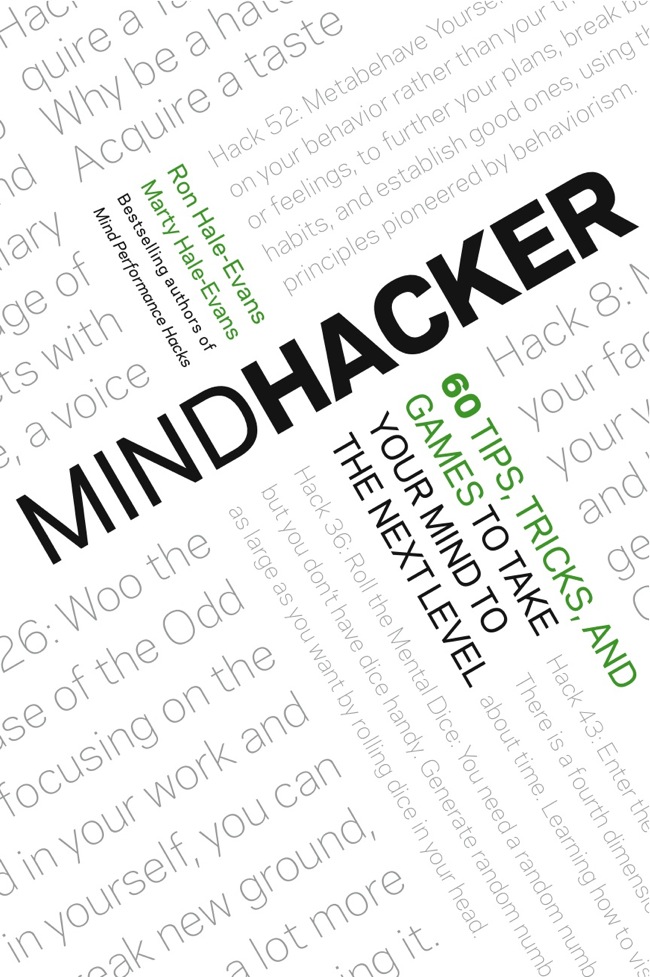If you’re reading this, chances are you’re a smart geek who’d always like to be a little smarter. If that’s the case, here’s a book for you.
“Mindhacker” is a new book by Ron and Marty Hale-Evans, and it’s full of neat tips and tricks to help you think a little better. It’s a sort of unofficial sequel to “Mind Performance Hacks,” Ron’s first book, published by O’Reilly in 2006.
While Marty was an occasional contributor to her husband’s previous book, she’s been promoted to co-author of this new volume. Ron is a technical writer and board game designer, and Marty is a technical book editor. They both live in Tacoma, Washington.
“Mindhacker,” published by Wiley, is split into nine chapters of short “hacks,” with a total of 60 over the book’s 388 pages.
If you go through all of the hacks, you’ll do lots of things in order to stretch that no doubt already capacious geeky head of yours. You can pretend to be a grad student (which, at the book’s price of around $25, is much, much cheaper than the real thing), learn how to speed-read, build your own personal canon of “great books,” boost your creatvity and productivity, find lost objects easily, and even improve your memory by playing “Doom.” If that’s not enough, you can even learn to enter the Fourth Dimension.
The one hack I cringe about is writing in my books. For some reason, I just can’t get past the idea, even if a lot of great authors have left behind extensive marginalia. I suppose using sticky notes might be an acceptable compromise.
One of my favorite hacks are the ones that have to do with time. Hack 19, “Tell Time Who’s Boss,” shows you how to get a grip on your time management by using alternative timekeeping schemes, including UTC and 28-hour-days as options. Hack 20 shows you how to use Mission Elapsed Time the way NASA does in order to keep your projects on track, no matter when you actually start working on them.
There’s a real embarrassment of riches in this book, all of which are well-researched and scientifically rigorous, which reflects Ron’s psychology
background.
This is a book that seems tailor-made for browsing. “Mindhacker” is extensively cross-referenced. When you pick this book up, you’ll find yourself zooming around the pages, bouncing from hack to hack to hack.
I was already a fan of the previous book, “Mind Performance Hacks,” and this is certainly a worthy sequel, in spirit if not in fact. It will definitely become part of my personal canon, and if you’re really serious about stretching your mind, it should be part of yours, too.
If you like this, then you’ll also enjoy our post about a clock that makes you rethink your perceptions of time and the Sigmund Freud action figure.











